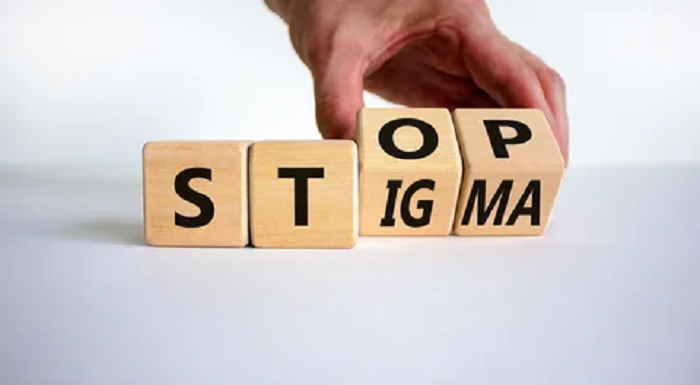Debt is a reality that many individuals and businesses face at some point in their lives. Whether it’s from loans, unpaid invoices, or financial downturns, debt can create stress and uncertainty.
However, in Ireland, the stigma surrounding debt collection has long been a barrier to effective debt recovery. This perception often discourages individuals from addressing their financial obligations and prevents businesses from seeking fair compensation for the money owed to them. It’s time to eliminate this stigma and address debt recovery as a legitimate and necessary aspect of the financial ecosystem.
The Reality of Debt Collection in Ireland
Debt collection in Ireland is often seen as a last resort, tainted with negative connotations of harassment, shame, and financial failure. However, the process of collecting a debt is, at its core, a legal mechanism designed to ensure that both individuals and businesses are paid what they are owed in a fair and structured manner. Debt recovery is not just about reclaiming money; it’s also about maintaining the financial health of businesses and the economy at large.
In many cases, unpaid debts can lead to cash flow issues for businesses, resulting in the inability to pay their own creditors or employees. For individuals, unresolved debt can spiral into a cycle of financial difficulty, which, if left unchecked, may lead to bankruptcy or other severe financial consequences. Thus, recovering debts is not merely a question of fairness but of ensuring the stability of financial relationships.
The Misconception of Debt Recovery as Aggression
The stigma surrounding debt recovery often stems from a misunderstanding of how the process works. Many still associate it with aggressive or unethical tactics, thanks to the influence of media portrayals and outdated perceptions. The truth is that debt collection in Ireland operates within a strict legal framework designed to protect both creditors and debtors. Ethical debt recovery is built on professionalism, respect, and transparent communication, all of which ensure that debts are settled in a fair manner.
The legal framework in Ireland, particularly through the regulation of licensed debt collection agencies and the courts, ensures that debt collection processes are fair and free from harassment. The legislation emphasizes the rights of debtors, ensuring that debt recovery agencies cannot use intimidation or inappropriate methods to collect funds. Debt collectors in Ireland must adhere to guidelines that protect the debtor from unreasonable pressure while enabling creditors to claim what is lawfully theirs.
The Importance of Professional Debt Recovery Services
Seeking professional debt recovery services should not be viewed as an act of desperation but as a responsible and necessary step. Whether it’s a small business trying to recover unpaid invoices or an individual pursuing a personal loan repayment, using debt recovery agencies can provide clarity and order to what can often be a chaotic situation.
Professional agencies offer mediation and negotiation services that often resolve the matter without needing legal action. In fact, many debts are settled amicably, with payment plans tailored to the debtor’s circumstances. This allows for a win-win situation where both creditor and debtor reach a solution without added stress or damage to their relationship. The key here is the role that professionals play in guiding both parties through what can be a highly emotional process.
Changing the Perception: Why Debt Recovery Should Be Normalized
One of the biggest challenges in debt recovery is the stigma attached to owing money. Many debtors feel embarrassed, ashamed, or even frightened to address their financial obligations. However, debt is a normal part of economic life, and recovering that debt is simply a way of ensuring balance in financial relationships. Businesses rely on timely payments to function, and failure to collect debts can lead to serious repercussions, not only for individual companies but for the economy as a whole.
For this reason, normalizing debt collection in Ireland is essential. Rather than viewing debt recovery as a hostile or aggressive act, it should be seen as a necessary part of financial responsibility. Open conversations about debt, focusing on solutions rather than assigning blame, can help remove the shame that often accompanies it. Recognizing debt recovery as a legitimate financial service will help both businesses and individuals handle their financial difficulties more efficiently.
Educating the Public on the Debt Recovery Process
One of the most effective ways to reduce the stigma surrounding debt collection is through education. Many people misunderstand the process and their rights when it comes to dealing with outstanding debts. By providing clear, accessible information on how debt collection in Ireland works, the role of debt recovery agencies, and the legal protections available to debtors, much of the fear and uncertainty surrounding debt collection can be alleviated.
Educating the public also involves dispelling myths about the repercussions of dealing with debt collectors. Many believe that entering into discussions with a debt recovery agency automatically means legal action or negative credit repercussions. In reality, debt collectors are often there to help negotiate manageable payment terms and prevent further escalation. Open communication is usually the best way to resolve debts without harm to personal or professional reputations.
The Role of Regulation in Ethical Debt Recovery
Irish law provides robust regulations to ensure ethical debt recovery practices. The Central Bank of Ireland oversees debt collection activities, ensuring that creditors and debt recovery agencies follow legal protocols that protect debtor rights. This regulatory environment helps to promote fairness and trust in the debt collection industry.
Licensed debt collection agencies in Ireland must adhere to these regulations, which prohibit abusive practices. This framework ensures that debt recovery processes are humane and respectful, protecting individuals from any undue pressure or misconduct. The transparency and accountability required by law serve to further erode the stigma associated with debt collection, reinforcing the idea that it is a standard part of financial management.
Conclusion: Embracing a Balanced View of Debt Collection
In conclusion, eliminating the stigma of debt recovery in Ireland is about fostering a more balanced understanding of the process. Debt collection should not be seen as a sign of financial failure but as a legitimate means of restoring financial fairness and balance. By normalizing conversations about debt and encouraging transparency, we can transform the perception of debt collection in Ireland from one of shame to one of responsibility.
Debt recovery is an essential tool for maintaining the financial health of businesses and individuals alike. When approached ethically and transparently, it ensures that all parties are treated fairly, that obligations are met, and that financial relationships remain stable. With continued education and a shift in public perception, debt collection can lose its negative stigma and be seen for what it truly is—a vital component of a healthy economy.











